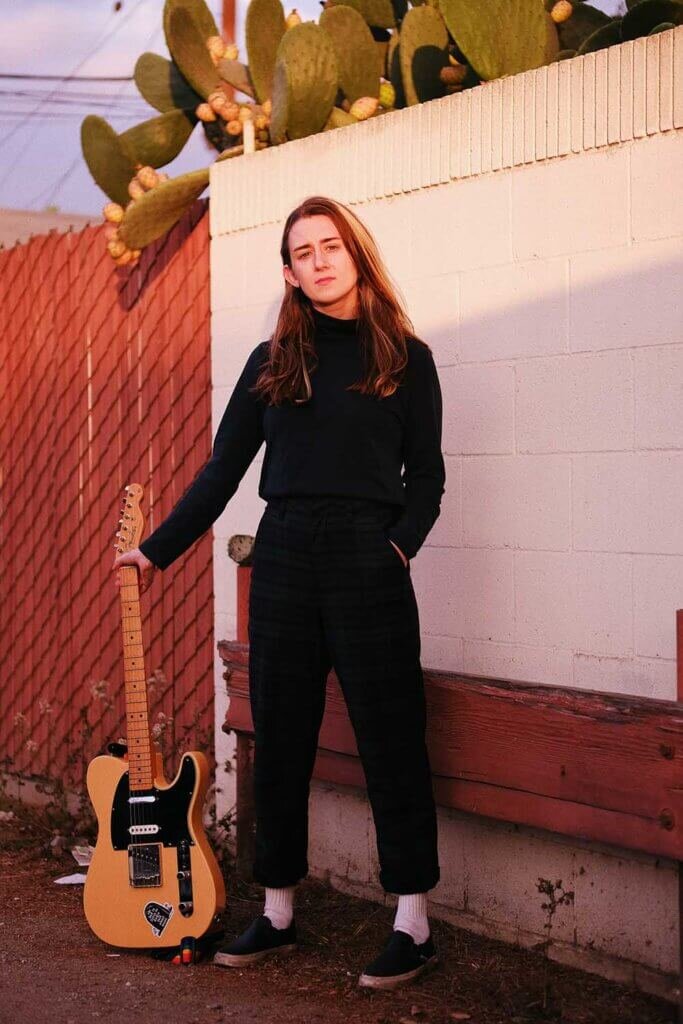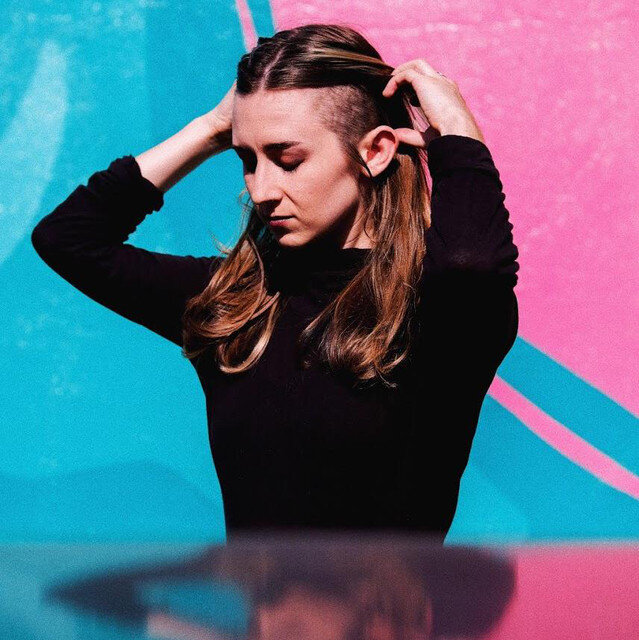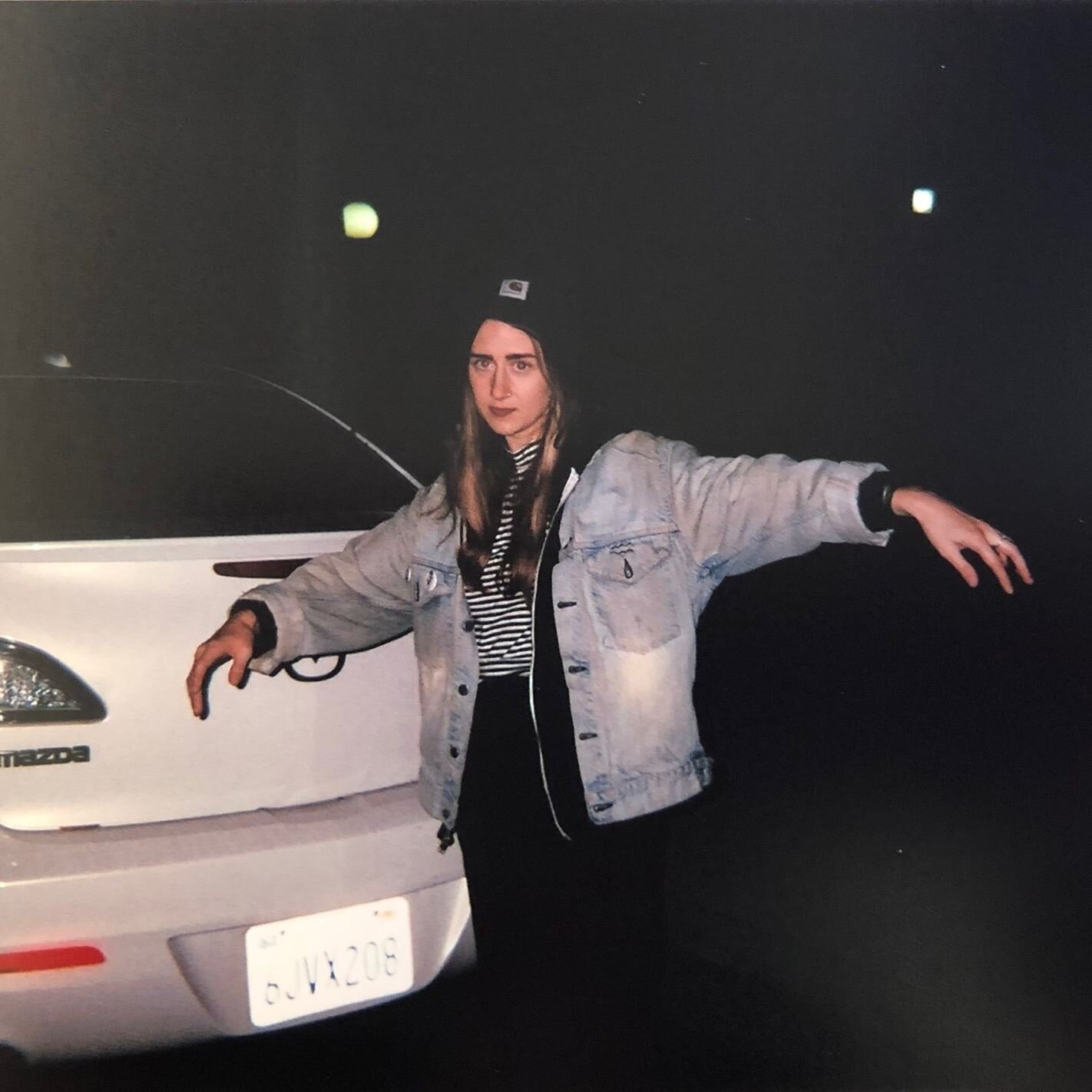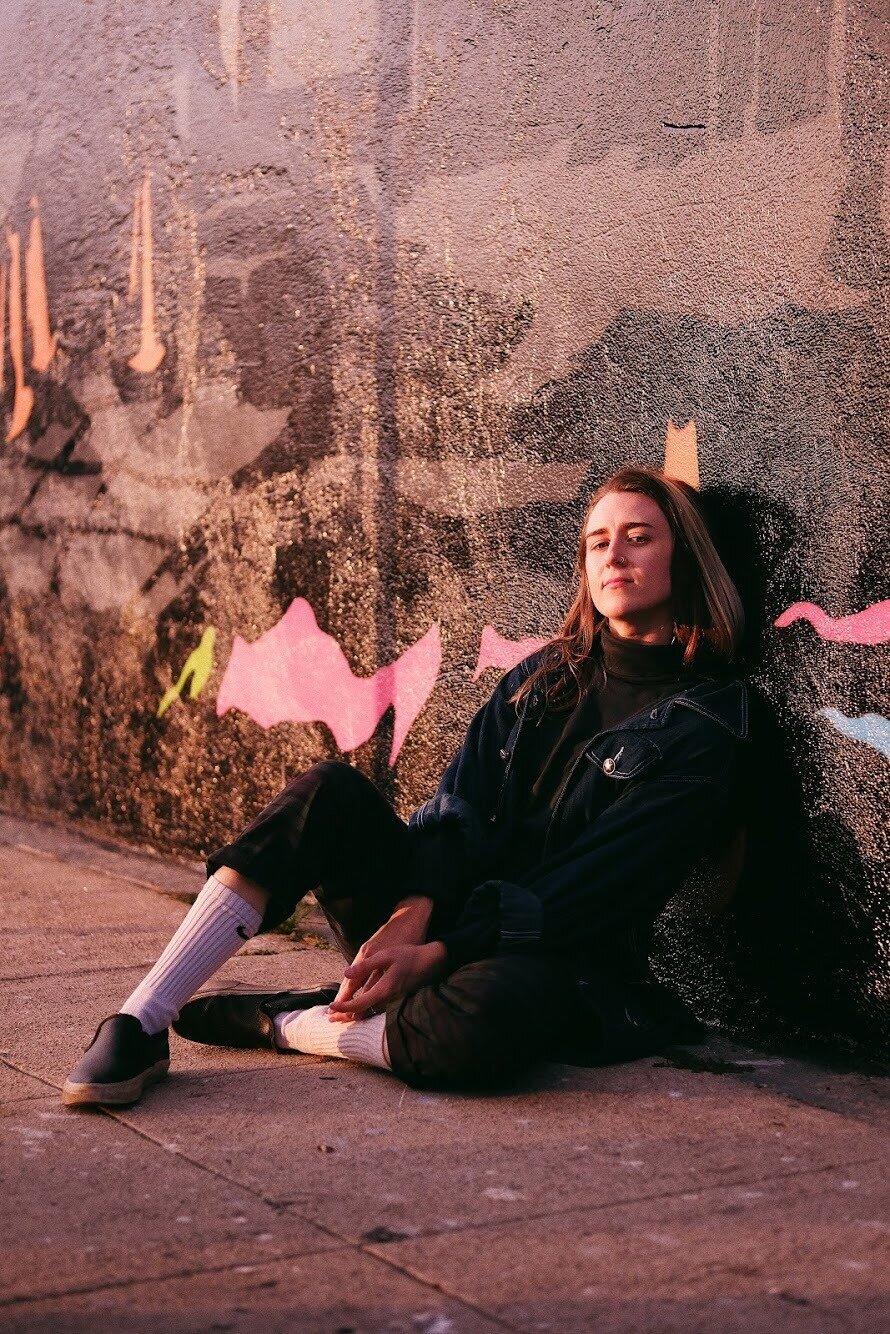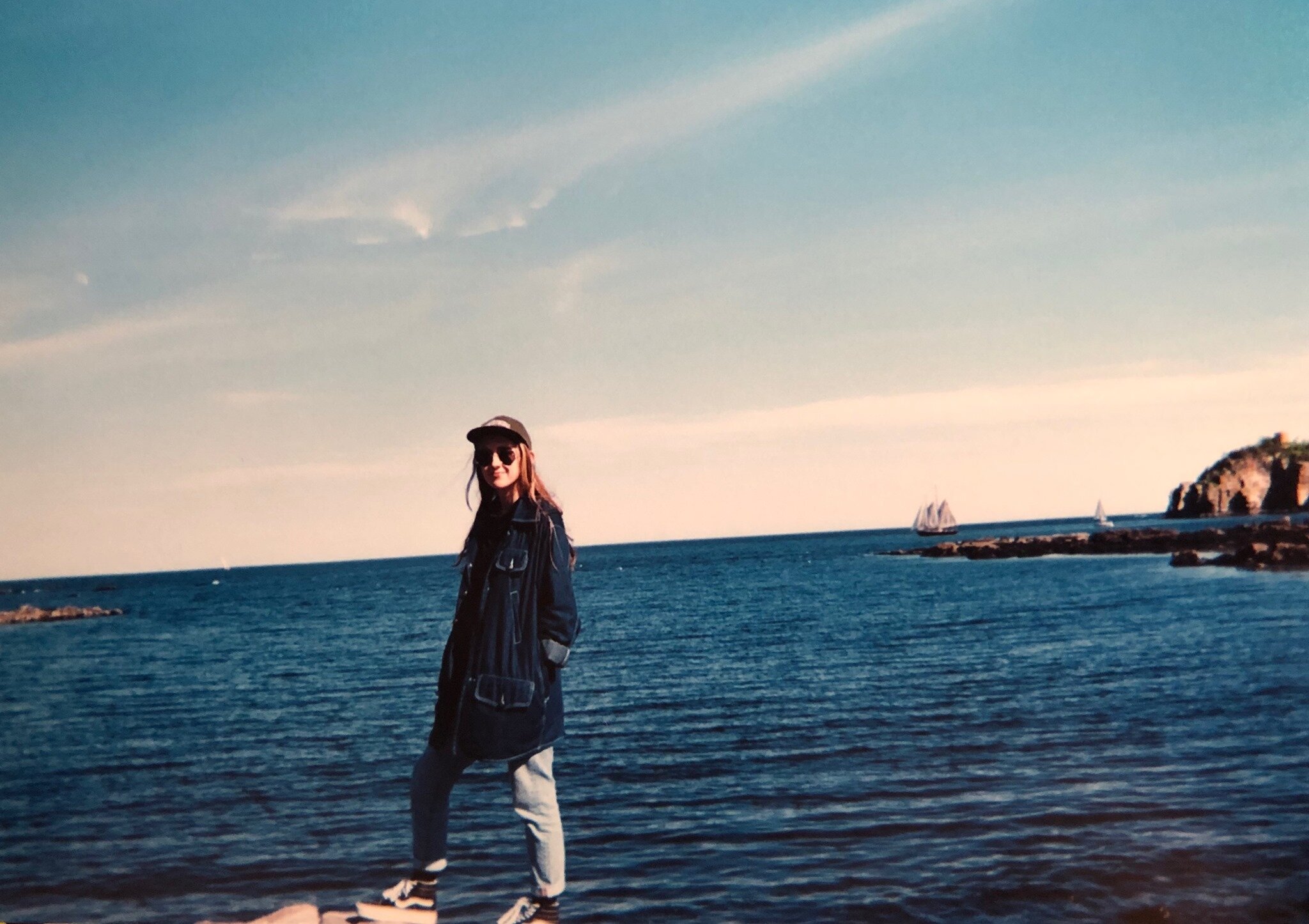Erin Anne Talks Her Debut Record, “School of Rock”, and Upcoming California Performances
With a style self-described as tender shredding, riot grrrl with a twist, and “New Jersey pop punk moves to LA, gets a therapist, and discovers astrology”, Los Angeles-based singer/songwriter and multi-instrumentalist, Erin Anne has a unique take on what it means to push the boundaries of modern music.
Self-releasing her debut record back in June, Tough Love, started out as demos recorded in a college dorm. However, bursting with catchy riffs and personal stories with a feminist punch, it wasn’t long before the album caught the eye of Carpark Records, who promptly signed Erin Anne earlier this year.
Now with a digital reissue already out, a special edition vinyl set for release on December 13, there’s no better time than now to jump in and experience the whimsical sonic world of this up-and-coming artist.
For more on Erin Anne, make sure to check out our exclusive interview below, grab tickets via her official site, and follow Erin on Facebook, Instagram, and Twitter!
You originally self-released your debut record, “Tough Love”, back in June before signing to Carpark Records. Could you walk us through your creative process for the re-recording?
Absolutely! My original intention with these songs had actually been to release them back in June 2018, at which point they were still demos I’d recorded in my UCLA grad dorm room. I expected that three people max would listen and that I’d have a little sense of accomplishment from sharing my independent work with the world in even the tiniest way. Just before then, though, my friend Lindsey (who is now my girlfriend and bassist) introduced me to her friend from USC Thornton, Alex Rogers. The two encouraged me to re-track the bedroom demos with Alex in his studio space, and I jumped at the chance.
It was a wildly scary but liberating experience for me. I wasn’t used to recording in front of other people—my process had always been completely solitary, with me standing in the same spot in my bedroom for upwards of eight hours and layering track over track over track. And I’d definitely never used live drums in any of my music before. Up to that point, I’d only ever played with Kyle the Logic Pro X drum machine. The process opened up so many possibilities that I’d never been able to explore with my own limited resources. Even things as simple as recording from an actual amp instead of a DI signal blew my mind. I’d never been able to record acoustic guitar, either. The most basic things just blasted open the record’s tonal world. The mixes we ended up with in February 2019 had more spatial expansiveness and timbral color than ever—and, finally, I felt like their emotional bandwidth stretched further than my bedroom studio. Those are the versions we released in June 2019, cursorily mastered by another USC acquaintance.
Once Carpark came on board, though, I was able to have the record remastered to restore some of the space and warmth that I felt had been lost in the original mastering pass—and, to my great delight, I got to work with Sarah Register, who has worked on stuff by some of my favorite bands. It was incredibly cool to work with her. I’d never had the opportunity to work with a woman engineer. That sounds basic, but I’d really never met one in all my years of doing this. Sarah listened to me, and she understood the universe my music was trying to build. It came out sounding so full. I cried the first time I heard everything.
I heard that you played every instrument, with the exception of drums on the album. Is there one instrument that you’re especially drawn to or that “spoke to you” in particular?
Yes! Alex played all the drum parts.
The electric guitar has always been my first love, aside from my elementary school babysitter Suzanne. It drives my songwriting process, and all the music I love generally features it heavily. It’s the subject of all my academic work, too. The year 2003 was huge for me. Freaky Friday and School of Rock literally dictated to me desires I’d never thought I had. I wanted to play Lindsey Lohan’s gorgeous cherry red Telecaster and Jack Black’s classic Gibson SG. I own a Tele of my own now, with which I recorded all the guitar parts on Tough Love; and the SG is my stage guitar, so I’d say I followed that dream!
In addition to the record, you’ve also done a music video for the title track. What was your inspiration behind the song “Tough Love”?
“Tough Love” is my attempt at a jazzercise-worthy, chorus-of-guitars-blaring, pop-rock feminist anthem. It’s about the experience of being a queer woman trying to say anything about myself in any one of my careers and being told repeatedly that my perspective is “too political” or “too personal” because it isn’t the default. The song tries to capture what it feels like to stand up for myself in those situations. The conversation doesn’t always go well, and I’ll find myself losing my composure and becoming a flustered, inarticulate mess. It’s like sticking a clown nose on own face and saying “I’m the joke you think I am.” The negative voices in the back of my mind take over, and sometimes I’ll leave believing the other person.
I wrote the song so that I have something to return to in those moments. It expresses all the things I wish I had said. I wanted it to sound like a big-haired, shoulder-pad-wearing lady slamming her briefcase on a table and yelling something about respect. It’s a scene I play out in my mind a lot. Musically, it’s an homage to one of my favorite genres: radio hits from the 1980s that are just unapologetically huge, like Belinda Carlisle’s “Heaven is a Place on Earth” or Boston’s “More Than A Feeling.”
I tried to capture this essence in the video from a lot of different campy angles. I toyed with a lot of different ideas of how I could best represent the spirit of the song visually, and, seeking inspiration, I went to Robinson Beautilities, the costume shop you see in the video. I bought a wig and moustache set called the “Big John,” for reasons of a) I thought the name was hilarious and b) it looked like a physical representation of the rude person always yelling at me within. I sent my director and friend, Madeleine Peters, a couple of demo shots I’d made with Lindsey, in which the Rude Big John Man is taunting me by setting booby traps throughout my own house. We built the world of the video out from there! Maddie’s vision—which was to have me working at Robinson Beautilities, then using costume pieces from there to become a series of selves/characters throughout the day (the Guitar Hero, the Dancing Queen, and the Used Car Salesman)—felt really authentic in its representation of my own funny experiences with identity: fractured, malleable, theatrical, and very queer.
The idea that we as people have to put on performance after performance throughout the day just to be perceived and interpreted as “functional” or “correct” or “interesting” is peak comedy to me. It’s all a charade, and “Tough Love” is about refusing to be a coherent subject just because some social myths said to. When Maddie and I made the video, I had just read (with great delight) Jia Tolentino’s Trick Mirror: Reflections on Self-Delusion. She says in her introduction, "These are the prisms through which I have come to know myself. In this book, I tried to undo their acts of refraction. I wanted to see the way I would see in a mirror. It’s possible I painted an elaborate mural instead.” I think that the “Tough Love” video achieves something quite similar.
Do you have a favorite memory from shooting the music video?
It was so much fun! Maddie is a documentary cinematographer for VICE News, which makes her excellent at getting fantastically creative shots on the fly. That was especially useful in the final scene of the music video, in which I’m walking down Lincoln Blvd in Los Angeles at peak rush hour in a wig, mustache, and business suit. It was… so hot, climate-wise. I was wearing so much wool and fake hair. People were waving at me from their cars and Maddie was able to capture me waving back in real time. It came out feeling so authentic and funny. At one point, a man yelled “Good morning, son” from his truck. It felt weirdly validating. I’m still unpacking why.
You’re currently working on a PhD in musicology at UCLA. How do you find balance between your schooling and music career?
Luckily for me, each pursuit feeds pretty nicely into the other. My academic work focuses on how gender, body shape, socialization, and sexuality work in tandem to inform personal guitar technique; and so, I’m often writing anecdotally about my own experiences with composing music and performing it live. It all fits together really symbiotically. And my academic experiences give me plenty of stories to tell in my music. I just really love language. Originally, I wanted to major in linguistics in undergrad, and I can approach that from all angles with the type of career I’ve set up for myself. I’m lucky that I can play music at night and teach during the day, too, because teaching is one of my favorite parts of my university experience. My students are all very smart and cool.
Is there any advice would you give to other young musicians in the same position?
Don’t compromise parts of yourself to fit any particular musical or personal mold. If people don’t have words to describe what you’re doing, you’re probably on the right track. Don’t be afraid to take up space, especially if people try to tell you that the space for you doesn’t exist yet. Do everything you can to preserve your relationship to musical joy, whatever that might mean to you. If you’re experiencing writer’s block, you likely need to go outside or sleep.
What originally got you interested in a career in music?
I wasn’t kidding about Freaky Friday and School of Rock!
Aside from that, my undergrad advisor, Bowdoin College music professor Tracy McMullen, was hugely influential for me in my choices to start my own band and explore musicology in my graduate studies. I took a course with her called “Gender, Sexuality, and Popular Music” in the Spring of 2014, and we watched the documentary The Punk Singer, which is about Kathleen Hanna. I’d never heard of riot grrrl before that point. It changed my outlook on music-making forever. For some reason, it hadn’t occurred to me before then that it was possible for me to play my music with other people. I hadn’t ever done that. I’d always just recorded my own stuff in my bedroom in New Jersey as a teen. I started my own riot-grrrl-style band shortly after that, and I wrote my senior honors thesis about punk as a method for queer women’s self-actualization. That’s the work that got me into UCLA.
Could you walk us through your creative or songwriting process?
I always start with the riff. That tends to dictate whatever lyrical content I’ll land on later. Often, as I play the riff in my bedroom, something I’ve read or watched recently will come to mind, and I’ll build out the lyrical universe from that thought. I can point to that “thing”—whether it’s a psychoanalytic text, memoir, TV show, or dream—for each and every song I write. It becomes the narrative I’m trying to convey. I approach each song as a beginning-to-end story to be told rather than a series of verse/chorus/bridge boxes to be checked. That’s been my approach since I started writing songs when I was 10. I love a hook and I love a satisfying melody as much as anyone, but I don’t always want these elements to arise in predictable places. I’ve had a fair amount of music theory training, and I’m truthfully doing my best to un-learn it right now. I found that my songwriting became super boring and generic in my early undergrad years, when I had a hyperawareness of what the “rules” were.
How would you describe your sound for fans just discovering your music?
Tender shredding. New Jersey pop punk moves to LA, gets a therapist, and discovers astrology!
You have a couple California shows coming up in San Diego and LA in December. Are there any songs that you’re particularly excited to perform live?
These shows will be the first I’ve played with a four-piece setup instead of three-piece, meaning that we’ll have keys AND drums AND bass AND guitar! Every arrangement sounds fuller and more electrifying than has previously been possible for us. I’m particularly excited about “Gaslighter.” The ending of the live version, if I’m honest, goes off
What are your goals for this upcoming year?
Complete my next record, overthrow the government, and play a show in another state!
Coverage by Jessica Nakamoto
Images courtesy of Google Images
For upcoming events and artists features, follow SoundBite Magazine on Instagram, Twitter, Facebook, and YouTube. If you would like to be feature your event, art, music, or company on SoundBite Magazine, please contact soundbitemag@gmail.com for features and promotional inquiries.

